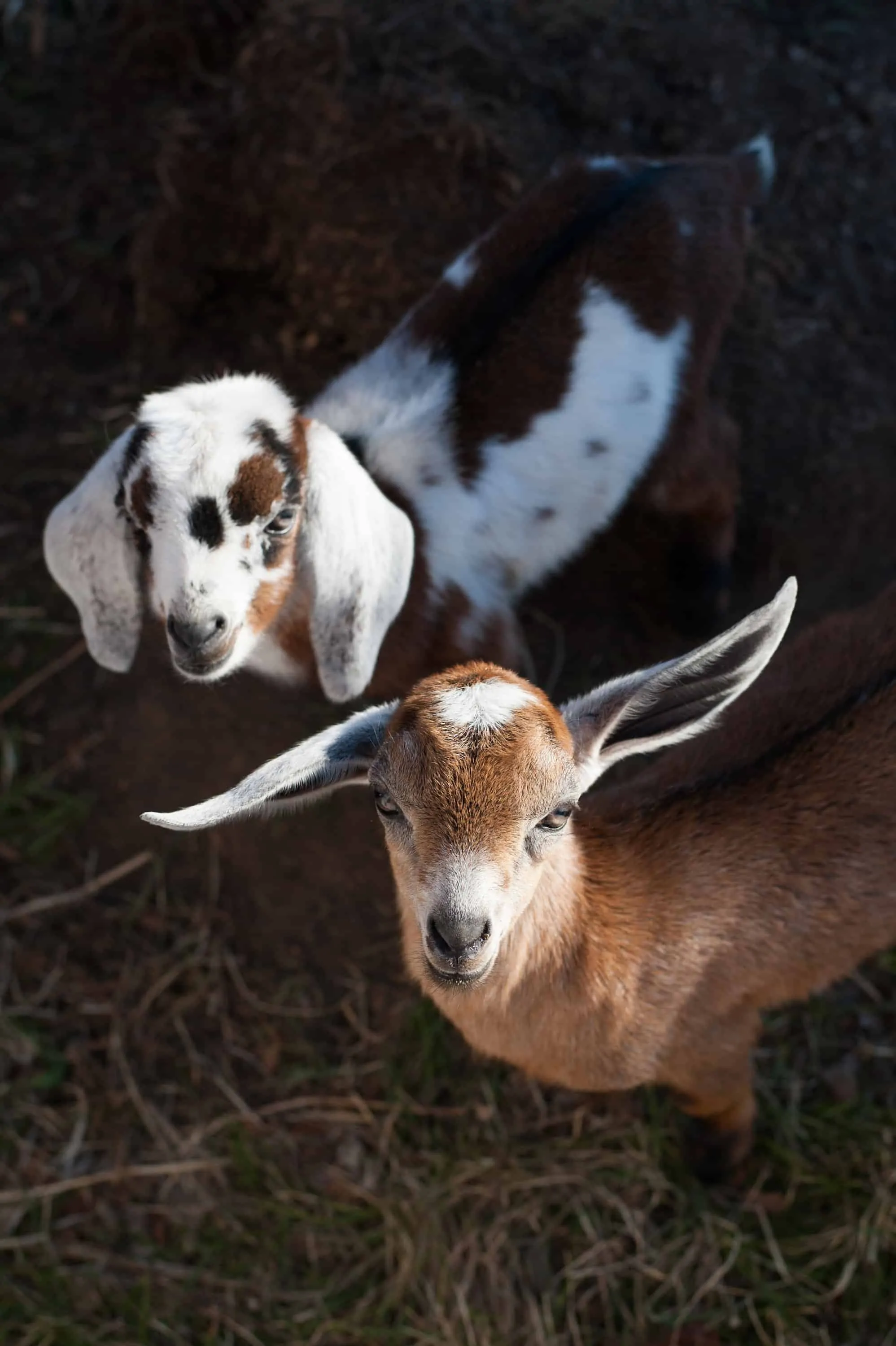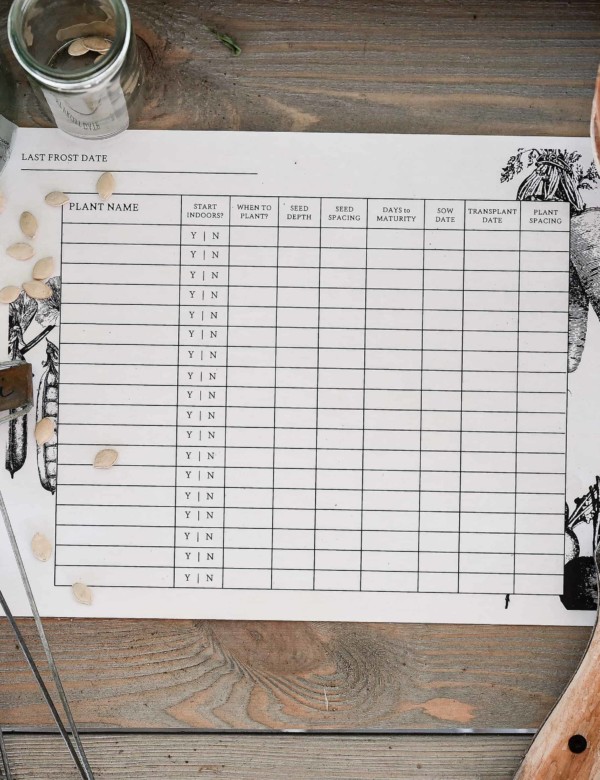Please note that I am not a veterinarian, and my opinions on coccidia in goat kids come from personal experience.
Please research diligently before making and major decisions for your goats! Always speak with a trusted vet when possible. Remember, there is a lot of information on the internet, and a lot of it is misleading. While I trust these resources, there may be some misleading information that they believe and I do not… Please use these as resources, but talk with a vet or someone else you trust before medicating or making any major decisions. Goats are delicate and shouldn’t be experimented on. Be 100% sure of your plan of action before doing anything! When in doubt, CALL YOUR VET!
Table of Contents
This post is incredibly hard for me to write, but I feel like if I learned anything from this experience, it’s that ignorance is most definitely not bliss. My only wish is to share the information I have learned over the past 72 hours with you in hopes that it might save a goat’s life.

My Experience With Coccidia
When I picked Rosemary up, she had a small case of diarrhea, nothing I worried too much about, because A) she was a baby, B) she was undergoing a lot of stress with the move, and C) she was on milk replacer. I remember my mother-in-law pointing it out, and me brushing it off saying, “oh she’s fine, nothing to worry about.”
She continued to have diarrhea for the next week or so, and I started to become concerned. I did a little research on the internet and found a few articles talking about milk replacer being the cause of most diarrhea. I also read the word “Coccidiosis” a few times, but didn’t think anything of it, because the telltale sign of the horrible parasite was a bloody loose stool. Since Rosemary’s stools weren’t bloody, I didn’t consider her a candidate of Coccidiosis.
What We Did
We cut her milk back, switched all of the goats from powdered milk to Vitamin D milk, and treated her with antibiotics.
I left for Sonoma for a few days and when I got home, she had gotten considerably worse. Something wasn’t right. I treated her with another antibiotic, and went to the local feed store to ask them a few questions about her condition. The answer I got was ‘overfeeding’.
I didn’t understand how this could be, so I called the vet, and made an appointment for the following day. We thought she might not make it through the night, so I brought her and her brothers inside for the night to sleep out of the elements. I was relieved the next morning when I found her alive.
She ate a little bit, and it was soon time to take her to the vet. When we got there, I explained her symptoms, and the vet immediately tested for Coccidia in her stool. BINGO! He found it, and gave me a giant bag of pills – in a very official prescription zip-lock bag with instructions Sharpied on. I started her treatment and was very hopeful that she would pull through. She made it through the first night, but when I came out to check on her in the morning, she was crying in pain and the blanket in her kennel was soaked with blood.
The next few hours passed so slowly as I waited for the vet’s office to open. Right as the clock struck 9, I called to find out what I should do. The vet told me I could bring her in to be put on an IV to replace the loss of fluids, which would help her recover. So we got her in, and on an IV. She made it through the first night, and the vet was very hopeful for her.
I made the decision to leave her one more night just to be sure, but around 5 o’clock, I received the phone call that she had passed away.
I know it sounds ridiculous, because people eat goat for crying out loud, but I loved her, and she was my pet, and a part of our family. My heart broke, but the vet’s office had done all they could for her.
I feel incredible guilt for treating her with antibiotics without getting her stools tested. This could have been treated days earlier had I done so, and she just might be alive. But you know what they say, hindsight is 20-20, and I did everything I could do to try and save her. It still doesn’t take the sting away, but it helps knowing she is no longer in pain.
The point of this post; however, is to inform anyone who is getting goats for the first time about this horrible parasite. Please learn from my ignorance!
What is Coccidiosis?
Coccidia is a parasite found in all goats. Some say goats only die of it due to poor conditions, but I believe that is a myth. Coccidia levels are usually manageable for goats. They are simply a natural part of their body. But when a goat becomes stressed, or the weather starts to change, the Coccidia can rise to a dangerous level. This is when goats die.
I found multiple people state that if they see symptoms or not, they treat kid goats at exactly 21 days of age, and again 21 days later. Some owners even opt to treat for a third time. That’s how bad this nasty bug is. Kid goats simply don’t have the immune system to fight off even normal levels of the parasite. While I’m not sure if that extreme pre-treatment is necessary, it is an interesting piece of information.
Why 21 days? The eggs of Coccidia take exactly 21 days to hatch. Begin treatment right when it hatches, before it has a chance to start eating away at the intestines. Bloody diarrhea is usually the telltale sign for Coccidia. Keep in mind, it is usually too late to treat and save your goat at this point. A goat can have Coccidiosis and not have diarrhea. The only way to truly know is to have their stools tested.
Oh, but wait, it gets even worse. This parasite doesn’t die when it leaves the body and stays on the ground for up to 21 days. I have read a few pieces stating up to 6 months, but the parasite can only survive in a host. If it hatches after the 21 day cycle, and doesn’t find a host, it will die. What does that mean for the rest of the herd? It means that this parasite is the equivalent of Parvo for dogs. It’s incredibly contagious, and goats in proximity around another infected goat are very likely to contract it.
Can My Other Pets Become Infected?
Dogs can also contract Coccidiosis, but it is a different species of the parasite. Dogs and goats do not have the same kind of Coccidia, so there’s no need to worry about any of your other pets contracting it if your goats have it.
I spent all of yesterday bleaching our entire porch, walkways, the goat’s pen, and our house (because the goats have broken all rules, and have yes, been in the house). This was a huge pain in the butt, but it is very necessary to eliminate the Coccidia eggs. We also have moved the other goats to a new (untouched) temporary location for 21 days until it is safe for them to go back to their original pen. The first thing you should do when you find one of your goats or kids with Coccidiosis is separate, the begin to treat!
How To Prevent Coccidia
This stuff is B-A-D bad. The worst part about this is that there’s really no way to completely eliminate the parasite from your herd, because it’s simply a natural part of being a goat – they all have it in them! The best way to stop an outbreak of high levels (read: death) is prevention.
Have Corrid powder on hand – JUST DO IT! Don’t wait until it’s too late. Click the link right here and order some if you don’t already have it on hand.
The powder is great for prevention, but it will not treat an outbreak once it’s happened. If you do notice a goat with the runs, I urge you to have their stools tested. Don’t simply wait it out – it could be the difference between life or death.
What To Do If There Is An Outbreak
If your goat(s) do in fact have an outbreak of Coccidia, you need to get them on Sulfadimethoxine (my preferred treatment, but your vet may have something they like better), call your vet right away. Give this to them for at least 10 days. 5 days is not long enough! The side effects of this medication are very slim, and giving it to them longer will only help their case. I would also encourage you to add a gram of probiotics to their feed to help balance out their finicky gut (who knew goats’ guts were so intolerant!?). Call your vet, they will be happy to help!
I am usually a hypochondriac, constantly worried that my chickens have mites, or my cats have fleas, and in this case I thought I was overreacting about Rosemary’s condition. I didn’t possibly think that any goat of mine would die from Coccidia, but guess what? She did. And it’s absolutely devastating to me.
I have had to pay for my education on this subject, and in this case it was the life of an innocent animal. If anything, I hope that you will learn from my mistakes, and take preventative measures to protect your goats from Coccidiosis.
PS – NEVER feed a baby goat milk replacer powder. Instead, opt for canned goat’s milk, or Vitamin D cow’s milk (so much easier too!). The majority of powdered milk replacer contain soy, which cannot be digested by kid goats.
I am so thankful to everyone who has reached out to me with condolences about Rosemary. It can feel silly since she was a goat, but she was very much a part of our little family, and was my very first goat. I will miss her so much, but I am thankful she is no longer in any pain. Thank you from the bottom of my heart for all of your thoughts and kind words.
More about Coccidiosis:
Fiasco Farm | Purdue | Tennessee Meat Goats
Many thanks to Carrie Richards Photography for the photos!
MORE GOAT POSTS:




Sorry for your loss. I, too, lost a kid to ignorance on my part. I try to keep my goats as organic as possible. So when one of my kids developed the runs, I grabbed my herbs and went to work. It was exhausting and frustrating and after about a week and a half, the kid died. Surely I had done everything right! But no. Like you, I sadly learned some things are not to be messed with and medical intervention is necessary. While I’m not as aggressive about it as you are with treatment, I’m more of a lets wait and see kind of person. I do know that when weaning time comes, this is usually when I start to see it and treat accordingly. I also worm the mom while she is still nursing and the baby gets the effect of that as well. Raising livestock is heart breaking sometimes but it’s also so much fun. Keep your chin up. The others still need you.
I am so sorry you lost one of yours too, it’s a horrible feeling isn’t it? I can completely agree that trying to stay organic is best! I think as I get more experienced I will try to eliminate the use of medication unless it’s absolutely necessary, but right now I am just a little gun shy ;) Thank you so much for your sweet comment and taking the time to read!
Chloe, I’m so sorry for your loss. This sounds like a terrible experience but you’re right, you did everything in your power and you’re now sharing what you’ve learned to help prevent others from going through the same thing.
Sending you love….xoxoox
Thank you Meagan! I am still so sad, when I look at her brothers, I really wish she was standing there next to them, but I am trying to move past it and just give them all the love!
Oh no I can’t tell you how sorry I am!!! This is horrible:( All my love to you, and I am even more glad o have met her and that you have these photos to remember her! xoxo
Carrie thank you so much for the photos – they mean so much more to me now!
I am so sorry to hear about this! I know how devastating is to lose someone you love, regardless of what species your loved one is. I think it is wonderful that you are able to share this information and help prevent the same thing happening to someone else.
Thank you so much Beth, every time I see photos of her I get a bit sad, but feel happy to be able to love her brothers!
What is the measurements for goats??
What is the measurements for goats on the corridor powder?
There are dilution instructions on the package you can follow (sorry don’t know exact off top of my head), but important to remember it’s just a preventative and won’t treat if you’re having an outbreak. Happy goating :)
Really useful thread and now I can get real information about my goat’s health issues. But for now, I needed some ideas to write a dissertation. Someone suggest me to read the https://writeupcafe.com/blog/education/1302462-5-main-problems-encountered-when-writing-a-dissertation/ blog which I got a little much helpful. But I need some strong recommendation for this. Do you have any?
https://boxwoodavenue.com/
Your story touched my heart.
Every spring I get goat fever. I would love to have a pair.
I have done some reading and there are a few kids for sale currently.
I actually went today to see some Nigerian Dwarf kids.
I did notice that the friendliest one had signs of scours on his hind legs that had dried. I wondered if it was that parasite.
There are so many things to learn. I don’t know how to approach the sellers and ask if they do prevention for this.
Its hard. I want a healthy start with a pair! A couple are 14 hours away and I know too that stress can cause this too.
Your story has brought courage to me to ask the sellers the right questions. I am so heartbroken for you but you are helping others by writing this and I thank you so very much.
I have more knowledge now and am more aware because of your experience. Electrolytes are very beneficial during stressful times and education of prevention of this parasite in young kids is important. Thank you so much.